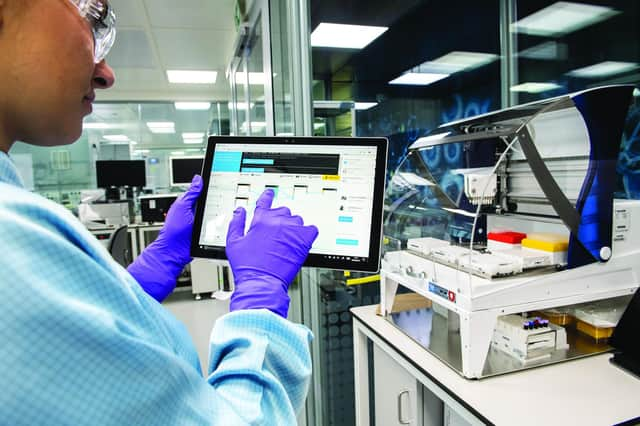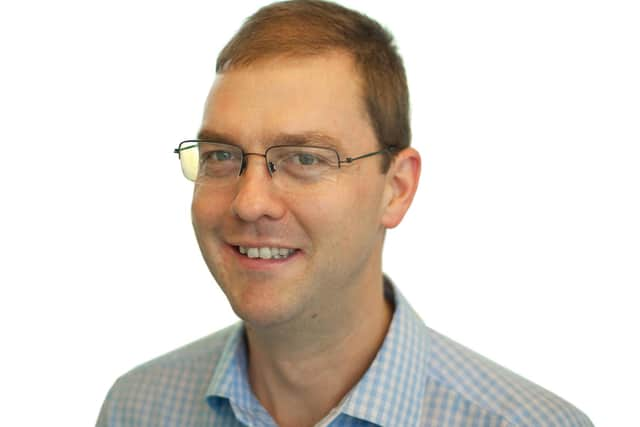Life Sciences: CGT Catapult moves into perfect position


CGT Catapult – the CGT stands for Cell and Gene Therapy –opened its Edinburgh office in January on the BioQuarter, for three big reasons.
Firstly, the University of Edinburgh excels in stem cell science, merging research in fundamental cell biology and tissue repair with clinical translation to advance human health at the Centre for Regenerative Medicine (CRM).
Next door to the CRM is the new building for the Institute for Regeneration and Repair (IRR), which will bring together more than 800 staff and students, strengthening its strong track record in developing new tools, treatments and enterprises.


Secondly, Scotland is exceptionally strong in terms of its contract research organisations and pharma service companies. CGT Catapult’s manufacturing survey shows that Scotland has around three-quarters of the UK’s cleanroom space – for example, high-spec labs for testing clinical products, to establish that they are sterile and suitable for use in patients.
Thirdly, the Edinburgh area has really interesting emerging CGT companies, such as those based in the Roslin Science Park and the BioQuarter, and well-established contract development manufacturing organisations, for example RoslinCT; built on the legacy of Dolly the Sheep.
The Edinburgh BioQuarter is unusual because of the co-location of its university, industry and healthcare provision. You could call the BioQuarter an ABC site – Academic, Biotech and Clinical – which is an ideal mix for a life sciences cluster. It’s an exciting place, buzzing with students and academics, as well as other cell therapy companies, and the Scottish National Blood Transfusion Service. It’s a microcosm of a life sciences cluster.
By next March, we hope to be in our new laboratories and office in the IRR. The labs will be critical and will provide research and development facilities, initially focused on inducing pluripotent stem cells. We’re not going to make clinical products there – the materials and products will not go into a patient. The labs will provide new capability, especially for the north of the UK, for the advancement of CGT therapies.
Through collaboration with partners in academia and industry, as well as healthcare service providers, the labs will help make CGT manufacturing processes as efficient and robust as possible, ultimately aiming to deliver higher-quality products at lower cost for patients and clinicians.
Training is another important area for the CGT Catapult and we provide upskilling, reskilling and training of individuals through the Advanced Therapies Apprenticeship Community. We also coordinate the Advanced Therapies Skills Training Network, which provides online resources and educational programmes, and comprises National Training Centres including the RoslinCT Training Academy.
CGT Catapult collaborates with academia, industry and healthcare providers, to help develop the UK as a global leader in the development of advanced therapies and life sciences in general.
At present – and this can happen in Edinburgh – patients with specific, complex diseases can donate their white blood cells, which are then purified, genetically transformed and grown before being infused back into the same patient several weeks later. The genetically engineered white blood cells could be reprogrammed to fight, for example, blood cancer.
That’s a marvellous philosophy where you’re making treatments from the patient’s own cells – their own medicine. However, a more efficient way is to use off-the shelf products, much like traditional pharmaceutics. With induced pluripotent stem cells, one of the aims is to develop such off-the-shelf products.
It’s back to that point of why we’re here – to provide better, safer and cheaper long-term advanced therapy treatment for many more patients.